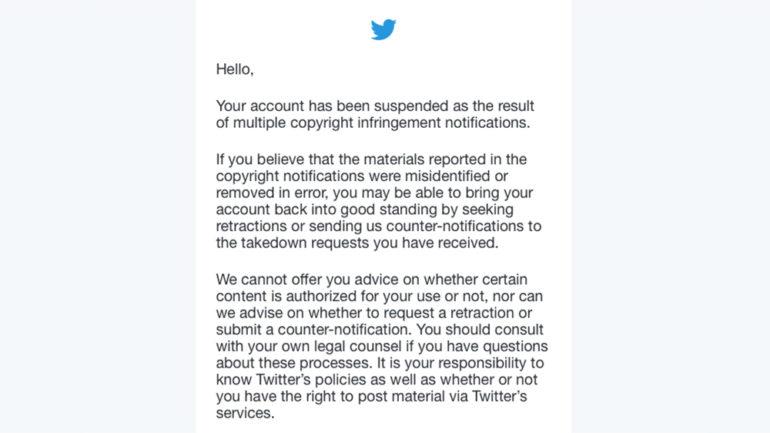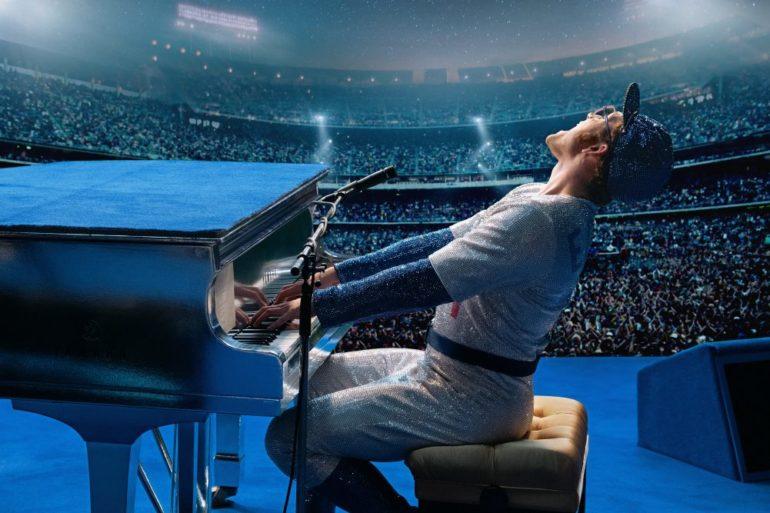With ‘Rocketman’ About to Launch, Why Is Twitter Banning Users for Jamming Elton John Songs?
By Roy Trakin
LOS ANGELES (Variety.com) – Musician Scott Bradlee is the leader of Postmodern Jukebox, a collective he formed in 2011 that’s amassed an impressive following by posting YouTube videos featuring vintage jazz, swing and blues covers of pop hits from Lady Gaga and Katy Perry to the Strokes and the White Stripes. With nearly 4 million subscribers, Postmodern Jukebox’s take on songs like Radiohead’s “Creep” (62 million views) and Panic at the Disco’s “High Hopes” have been watched more than a billion times.
So when Bradlee received a notice of a copyright violation from Twitter on April 20 for a two-year-old, 20-second-long clip of him improvising the chorus to Elton John’s “Crocodile Rock” on piano (without vocals), it hit him where his own music lived – on the Internet.
“I received a suspension for playing the chorus of ’s ‘Crocodile Rock’ on the piano,” Bradlee told Variety on April 24. “It wasn’t a commercial use and I wasn’t selling it. It was me making a fun recording on my iPhone.”
Citing the now-antiquated 1990s-era Digital Millennial Copyright Act (DMCA) takedown provision, Twitter sent the musician a letter it received from David Benjamin, Head of Content Protection for Universal Music Group Publishing “asking for your immediate assistance in stopping this unauthorized activity.” Shortly after the warning, Scott learned from Twitter his account had been suspended “as the result of multiple copyright infringement notifications.” He then took to Facebook to express his outrage. And while he contacted both UMPG, which has since withdrawn the complaint, and Twitter about his account (which has since been reinstated), Bradlee was none too pleased at the hassle.
“The difference with YouTube is there is still revenue-sharing going on,” he says, noting his collective’s organically-built following based on streaming cover songs. “Universal Music is issuing mass takedowns of anything they own. The goal is to force Twitter and other social media sites to come to the bargaining table and work out a system of content ID. … Of course, it’s become clear that Twitter DOES exercise control of what gets circulated on on their platform — to the point of reinterpreting their terms of service on a case by case basis — which should require them to be held to the same standards of other media companies when it comes to copyright and liability. But that’s a deeper conversation. The bottom line that I [saw from] my Twitter jail cell, is that when the music industry fights big tech, artists become pawns to be used in negotiation.”
A publishing executive familiar with Bradlee’s situation doesn’t disagree, noting, “Twitter does not have licenses to stream music. If Twitter wants to provide its users with the ability to stream music, they should obtain music licenses like other social platforms have done. Further, one would think that a company with a $30 billion market cap would be willing to do the right thing and pay songwriters for their work.” (Twitter did not respond to multiple requests for comment. The company typically does not comment on DMCA takedowns or account suspensions.)
The bone of contention remains that Twitter, and tech goliaths like YouTube and Facebook, don’t want to be held responsible for user content, insisting they’re not media sites but user platforms. That disagreement was addressed in the recently passed EU Copyright Directive’s Article 13, which decrees the sites must begin to police themselves, and will be held liable for any copyright infringements. The U.S. Music Modernization Act doesn’t go quite so far, but copyright lawyer Lisa Alter, a managing partner in the New York firm of Alter Kendrick & Baron, insists it’s a step in the right direction with the establishment of a Music Licensing Collective.
“There will be a more streamlined approach to licensing,” she says. “Unfortunately, it doesn’t have provisions for these media sites to vet material.” In other words, the political clout wielded by the Googles, Facebooks and Twitters in the U.S. will make that kind of enforcement difficult until the technology to do so is developed, which should happen in Europe now that Article 13 is being enforced. “Along with the NRA and terrestrial radio, big tech is the most powerful lobby in America,” adds Elder. “It’s a real push-pull to come up with systems that work for creators as well as ISPs [Internet Service Providers]. I don’t think it’s going to happen any time soon.”
Bradlee isn’t the only musician currently receiving Twitter takedown notices. His friend and frequent Postmodern Jukebox collaborator Casey Abrams, an alum of “American Idol” season 10 (2011), also had his share of Twitter beefs, ironically for playing Elton John’s “Rocketman” on sitar, which prompted a similar UMPG takedown. Could the company’s legal eagles be sharpening their talons to protect intellectual property anticipating the imminent release of the high-visibility biopic of the same name?
In response to Abrams’ violation, Twitter essentially wiped out his account, removing all his followers, and forced him into a new approach to posting his own daily videos on Instagram, Facebook and YouTube. “It’s one less site I have to worry about,” says Abrams, who has a jazz album coming out on May 31st. “It eliminates a lot of stress,” he downplays, noting that, “there’s not a whole lot of love on Twitter.”
Still, Abrams is perplexed at the ban. “People are posting mean and hurtful things, there’s violence, and we get punished for posting a song with love in our heart? That’s just crazy.”
Copyright expert Alter says the music business’ ‘whack-a-mole” method of controlling its intellectual property is a leftover from the 1998 DMCA act. “There’s a whole new industry consisting of companies that get hired by publishers to troll the Internet, particularly YouTube, and find unlicensed music. Then the decision becomes whether to try to monetize through a synchronization license or simply take it down.
“The tech industry claims that accessibility should trump copyright protection. Accessible does not translate to free. The beauty of the U.S. Constitution is that it protects original works of authorship, implemented by laws, even as it moves forward to alternate means of production and distribution.”
Says Bradlee: “I don’t blame the music publishers; my beef is with Twitter. I just don’t think it’s good for society. You’re going to suspend a kid who makes a cover video for a song just as you would someone issuing violent threats? I’ve come to recognize all the ways our society and brains are being programmed by social media. And this is from someone whose band broke on YouTube.”
Additional reporting by Michele Amabile Angermiller


